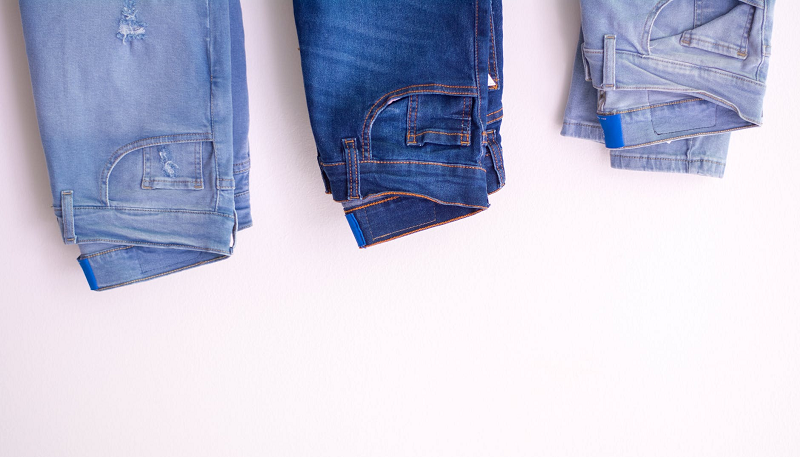When consumers search for ‘jeans’ or ‘pajamas’ on Google, the first page of its search results almost exclusively shows pages targeting women according to new research.
The new analysis by Searchmetrics finds that online fashion retailers need to be paying greater attention to this kind of gender bias in which Google automatically decides the gender intent of certain keywords.
The research, which analysed the search results for 10,000 fashion-related search terms on Google.com, found that even when the search terms did not include a stated gender (using words such as men’s, boy’s, women’s, woman’s etc) around 20% produced first page results that were identified as being gendered. 13% were categorised as being female-gendered by Google, while 3% were male-gendered – the remaining 4% produced a mix of search results, some targeting men and some targeting women.
Deeper analysis by Searchmetrics reveals that adding certain words to longer tail search terms changes the gender of the search results that Google displays. One example is ‘belt’, which transitions from mixed-gender to female-only when you add ‘cute’, ‘trendy’ or ‘waist’ – and male-only when you add words like ‘cool’ or ‘best’.
Colours and materials have a similar effect; adding the word ‘gold’ makes ‘belt’ female, while adding ‘leather’ can make the search results Google displays primarily male.
The research from Searchmetrics suggests that online fashion retailers should review the top keywords they are targeting and check if Google has a gender bias for those terms. They should take this into consideration when building their SEO and content strategy explains Karl Kleinschmidt, SEO manager at Searchmetrics: “For a search like ‘jeans’ which Google’s sees primarily as a female search term, you would find it harder to get on Google’s first page with pages targeting men – it would be a high-risk strategy to try it. But if you did manage to get your men’s jeans page to rank on page one for ‘jeans’, you would get lots of traffic because any man that is searching would be highly likely to click on your website.”
The search volume for ‘men’s jeans’ is about 73% of the search volume of ‘jeans’ suggesting that when men search for ‘jeans’ and see search results only targeting women, they revise their search query and try again.
Previously if you were an ecommerce business that wanted to target search terms that did not include a gender word, you would usually have created a gender-neutral page oriented at both men and women. But according to Searchmetrics, some major retail sites are taking note of the growth of gendered keywords and building their sites without gender-neutral pages.
“You can’t shop clothes on Macys online without choosing a gender,” said Kleinschmidt. “Taking away gender-neutral pages means that retailers aren’t cannibalizing their own search performance by targeting the same keywords with multiple pages – you don’t want to be competing with yourself.
“We’re not advising that removing gender neutral content should be your top priority if you are a fashion retailer, but you should certainly be taking the gender of your main search terms into account when planning content if you want to use search to generate traffic.”
The emergence of gendered search results is linked to the way SEO is becoming more about intent and less about exactly matching the words in the search query. Kleinschmidt explains: “Although we don’t know a 100% why this is happening, we know that Google takes click-through rates (CTR) into consideration when ranking pages. Women and men are more likely to click on results that are targeted at them, so if a keyword is searched more by women, for example, then their CTR will be higher, which Google will reward with a higher ranking. This starts a cycle where pages targeted at women for this query have a higher ranking, which means the other gender (in this case, men) won’t see pages relevant to them – they’ll change their search query (and therefore generate fewer clicks for their gender). This increases the CTR for gender targeted pages even more and incentivizes websites to gender target their pages. The cycle continues until a keyword is almost completely targeted at a single gender – as it is with ‘jeans’ and ‘pajamas’”.
You can find a blog post about this study on the Searchmetrics blog here

